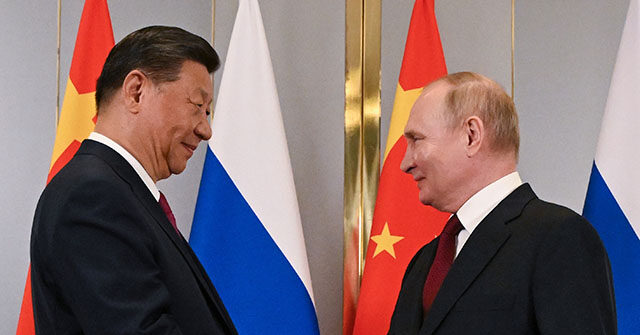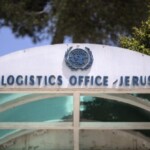Russian Finance Minister Anton Siluanov said on Thursday that the BRICS economic bloc, led by China and Russia, is working to create its own international payment system because the existing Western system is too politicized, and too vulnerable to pressure from the United States.
Siluanov was referring to heavy sanctions leveled against Russia after its brutal and illegal invasion of Ukraine in February 2022. Ever since those sanctions were imposed, Russia has been trying to create an alternative to SWIFT, the international financial tracking system established by Western nations.
“Our task is to create our own independent system, given the largely political decisions of the West,” Siluanov said on Thursday.
“BRICS is beyond politics, beyond any pressures and restrictions. Its aim is to stimulate economic growth and boost the income of our citizens,” he claimed.
BRICS was established by Brazil, Russia, India, and China as a counter to Western organizations like the Group of Seven (G7). The fifth member, South Africa (the “S” in BRICS), joined later.
BRICS added five new members in January 2024, including Egypt, Iran, Saudi Arabia, the United Arab Emirates (UAE), and Ethiopia. Argentina was also scheduled to join at that time, but backed out of the largely left-wing and anti-American coalition after the election of libertarian President Javier Milei. Another 13 nations are closely collaborating with BRICS and could apply for membership in the future.
BRICS has long sought ways to facilitate trade between its members without using the Western-dominated global financial system, or the U.S. dollar. Despite Siluanov’s absurd contention that BRICS is “beyond politics,” the big reason for this scramble to devise an alternative to SWIFT is entirely political: many of the BRICS nations have poor-to-appalling human rights records and they resent the ability of the Western world to impose sanctions against them.
The BRICS nations have also collectively exempted themselves from making any major sacrifices for climate change, even though the five core nations of the bloc emit more “greenhouse gas” than the entire rest of the world combined.
The climate change movement has been largely content to ignore non-Western nations until now, provided they pay lip service to the movement – but that hands-off attitude could change and China, Russia, India, and the other big polluters would rather not be vulnerable to climate sanctions if it does.
Siluanov envisioned BRICS creating a system in which the national currencies of its members, plus digital currencies, become the building blocks of an alternative to SWIFT. He said the developing nations of the “Global South” have expressed interest in joining the BRICS system when it takes shape.
Siluanov said BRICS should also develop alternatives to the International Monetary Fund (IMF) and World Bank,
“The IMF and the World Bank are not performing their roles. They are not working in the interests of BRICS countries. It is necessary to form new conditions or even new institutions, similar to the Bretton Woods institutions, but within the framework of our community, within the framework of BRICS,” he said.
Bretton Woods, named for the town in New Hampshire where it was signed, is the 1944 agreement among founding U.N. nations that led to the formation of the IMF and World Bank, in the hopes of stabilizing the global economy after World War II. Russia frequently complains that its trading partners are afraid to use the Bretton Woods architecture for transactions with Russia because they might trigger secondary U.S. and European sanctions by doing so.
The only real progress BRICS has made toward creating an alternative financial system is the New Development Bank (NDB), which was originally called the BRICS Development Bank when it was established in 2015.
The NDB is supposed to loan money to BRICS member nations and their corporations for “sustainable” development projects, much like the IMF and World Bank. However, the NDB is only a fraction of the size of those venerable international lending institutions, its resources have been stretched thin by the expanding BRICS membership, only about a quarter of its loans are made in local currencies instead of the U.S. dollar, and it has come under increasing criticism for funding environmentally insensitive projects.


